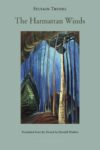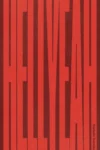 Music and writing are basically BFFs – Jennifer Egan’s victory lap sweep of last year’s major literary awards only reinforces their interconnectedness. Under the nebulous, pulsating umbrella that is “popular culture,” books and music have been weaving themselves together since before kids in college dorms stapled their first punk zines – now, when the Arcade Fire wins the Grammy for best album of the year, their mainstream victory has something to do with Maurice Sendak.
Music and writing are basically BFFs – Jennifer Egan’s victory lap sweep of last year’s major literary awards only reinforces their interconnectedness. Under the nebulous, pulsating umbrella that is “popular culture,” books and music have been weaving themselves together since before kids in college dorms stapled their first punk zines – now, when the Arcade Fire wins the Grammy for best album of the year, their mainstream victory has something to do with Maurice Sendak.
The music listening habits of writers are an intrinsic part of writers’ craft discussions. Largehearted Boy, the music/literary blog that reminds us books and music play in the same sandbox, runs an ongoing and riveting writing craft series about music called “Book Notes” and a complimentary series called “Note Books,” where musicians discuss their favorite books. Dan Chaon once told me that his teenage sons good-naturedly taunted him with lyrics from The Decemberists song “The Engine Driver,”: “I am a writer/ writer of fiction.”
Now books and music will have a new batch of Crossover Specials on music website juggernaut Pitchfork.com. Last month, Pitchfork posted a list of their 60 favorite music books – pointedly not a Best Of list, but their choices happily cover a huge range of genres from disco to punk to ambient to country to hip-hop. I’m currently making my way through one of their selects, Out of the Vinyl Deeps: Ellen Willis on Rock Music, a collection of Willis’s writing complied by her daughter, Nona Willis Aronowitz. Douglas Wolk’s introduction to the book captures its spirit exactly:
Reading the late Ellen Willis’s music criticism for the first time is like discovering that you’ve somehow never heard, say, Creedence Clearwater Revival before.
Pitchfork also just debuted a interview series called “Paper Trail,” in which they will talk to authors of music books about “how these words came to be, the goals each writer hoped to accomplish, and the ideas contained therein.” The first interview is between Pitchfork Editor-In-Chief and 33 1/3 series author Mark Richardson and music critic Simon Reynolds, who has written seven books about music, most recently Retromania: Pop Culture’s Addiction To Its Own Past.
Although Richardson and Reynolds delve into the content of the book, the interview mostly comes off as two seasoned music critics thoughtfully discussing the evolution of both the music industry and music criticism, thankfully without tumbling into some kind of cantankerous “kids these days don’t know how good it used to be!” nostalgia. The style of the interview mirrors the perspective Reynolds reportedly takes in his book:
Pitchfork: In regards to this book, people have said, “Oh, this is just Simon missing the music of his youth.” But I’m not totally clear on whether you think the current retro state is a terrible thing, or if it’s just the way it is.
SR: There are certainly enough gloomy moments that people could construct this idea that it’s me wishing that things were like they used to be, but I don’t wish that things were exactly like post-punk or rave. It’s more a general feeling that I wish there were a sense of things hurling forward more, with more direction. There’s something about music right now that feels all over the place. There are things going on that are quite clever and interesting in the way that they agree with the past, and there are things that just seem to be outright backward-looking. There are people doing stuff in every pre-existing decade or style, and tons of stuff is being reissued and people are reissuing stuff that perhaps shouldn’t be reissued. It’s like a profusion of stuff.
A profusion of stuff indeed – I now have another book and another column to add to my already overstuffed to-read list.
This post may contain affiliate links.







